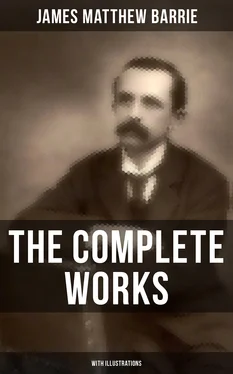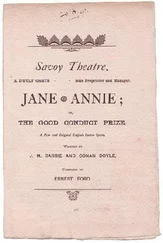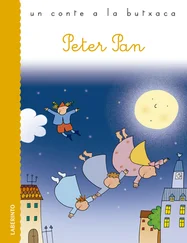There were a dozen men in the room, including the president of the Birmingham branch association and two members who had just returned from a visit to Edinburgh. These latter had already submitted their report.
The president introduced Andrew to the committee, but not the committee to him. Several of them he recognized from the portraits in the shop windows.
They stood or sat in groups looking over a probationer's thesis. It consisted of diagrams of machinery.
Andrew did not see the sketches, though they were handed round separately for inspection, but he listened eagerly to the president's explanations.
"The first," said the president, "is a beautiful little instrument worked by steam. Having placed his head on the velvet cushion D, the subject can confidently await results.
"No. 2 is the same model on a larger scale.
"As yet 3 can be of little use to us. It includes a room 13 feet by 11. X is the windows and other apertures; and these being closed up and the subjects admitted, all that remains to be done is to lock the door from the outside and turn on the gas. E, F, and K are couches, and L is a square inch of glass through which results may be noted.
"The speciality of 4, which is called the 'water cure,' is that it is only workable on water. It is generally admitted that release by drowning is the pleasantest of all deaths; and, indeed, 4, speaking roughly, is a boat with a hole in the bottom. It is so simple that a child could work it. C is the plug.
"No. 5 is an intricate instrument. The advantage claimed for it is that it enables a large number of persons to leave together."
While the thesis was under discussion, the attendance was increased by a few members specially interested in the question of female suffrage. Andrew observed that several of these wrote something on a piece of paper which lay on the table with a pencil beside it, before taking their seats.
He stretched himself in the direction of this paper, but subsided as he caught the eyes of two of the company riveted on his neck.
From that time until he left the rooms one member or other was staring at his neck. Andrew looked anxiously in the glass over the mantelpiece but could see nothing wrong.
The paper on the table merely contained such jottings as these:—
"Robert Buchanan has written another play."
"Schnadhörst is in town."
"Ashmead Bartlett walks in Temple Gardens 3 to 4."
"Clement Scott (?)"
"Query: Is there a dark passage near Hyndman's (Socialist's) house?"
"Talmage. Address, Midland Hotel."
"Andrew Lang (?)"
Andrew was a good deal interested in woman's suffrage, and the debate on this question in the students' society at Edinburgh, when he spoke for an hour and five minutes, is still remembered by the janitor who had to keep the door until the meeting closed.
Debating societies, like the company of reporters, engender a familiarity of reference to eminent persons, and Andrew had in his time struck down the champions of woman's rights as a boy plays with his ninepins.
To be brought face to face with a lady whose name is a household word wheresoever a few Scotchmen can meet and resolve themselves into an argument was another matter.
It was with no ordinary mingling of respect with curiosity that he stood up with the others to greet Mrs. Fawcett as the president led her into the room. The young man's face, as he looked upon her for the first time, was the best book this remarkable woman ever wrote.
The proceedings were necessarily quiet, and the president had introduced their guest to the meeting without Andrew's hearing a word.
He was far away in a snow-swept University quadrangle on a windy night, when Mrs. Fawcett rose to her feet.
Some one flung open the window, for the place was close, and immediately the skirl of a bagpiper broke the silence.
It might have been the devil that rushed into the room.
Still Andrew dreamed on.
The guest paused.
The members looked at each other, and the president nodded to one of them.
He left the room, and about two minutes afterwards the music suddenly ceased.
Andrew woke with a start in time to see him return, write two words in the members' book, and resume his seat. Mrs. Fawcett then began.
"I have before me," she said, turning over the leaves of a bulky manuscript, "a great deal of matter bearing on the question of woman's rights, which at such a meeting as this may be considered read. It is mainly historical, and while I am prepared to meet with hostile criticism from the society, I assume that the progress our agitation has made, with its disappointments, its trials, and its triumphs, has been followed more or less carefully by you all.
"Nor shall I, after the manner of speakers on such an occasion, pay you the doubtful compliment of fulsomely extolling your aims before your face.
"I come at once to the question of woman's rights in so far as the society can affect them, and I ask of you a consideration of my case with as little prejudice as men can be expected to approach it.
"In the constitution of the society, as it has been explained to me, I notice chiefly two things which would have filled me with indignation twenty years ago, but only remind me how far we are from the goal of our ambition now.
"The first is a sin of omission, the second one of commission, and the latter is the more to be deprecated in that you made it with your eyes open, after full discussion, while the other came about as a matter of course.
"I believe I am right in saying that the membership of this society is exclusively male, and also that no absolute veto has been placed on female candidature.
"As a matter of fact, it never struck the founders that such a veto in black and white was necessary. When they drew up the rules of membership the other sex never fell like a black shadow on the paper; it was forgotten. We owe our eligibility to many other offices (generally disputed at law) to the same accident. In short, the unwritten law of the argumentum ad crinolinam puts us to the side."
Having paid the society the compliment of believing that, however much it differed from her views, it would not dismiss them with a laugh, Mrs. Fawcett turned to the question of woman's alleged physical limitations.
She said much on this point that Andrew saw could not be easily refuted, but, interesting though she made it, we need not follow her over beaten ground.
So far the members had given her the courteous non-attention which thoughtful introductory remarks can always claim. It was when she reached her second head that they fastened upon her words.
Then Andrew had seen no sharper audience since he was one of a Scotch congregation on the scent of a heretic.
"At a full meeting of committee," said Mrs. Fawcett, with a ring of bitterness in her voice, "you passed a law that women should not enjoy the advantages of the association. Be they ever so eminent, their sex deprives them of your care. You take up the case of a petty maker of books because his tea-leaf solutions weary you, and you put a stop to him with an enthusiasm worthy of a nobler object.
"But the woman is left to decay.
"This society at its noblest was instituted for taking strong means to prevent men's slipping down the ladder it has been such a toil to them to mount, but the women who have climbed as high as they can fall from rung to rung.
"There are female nuisances as well as male; I presume no one here will gainsay me that. But you do not know them officially. The politicians who joke about three acres and a cow, the writers who are comic about mothers-in-law, the very boot-blacks have your solicitude, but you ignore their complements in the softer sex.
"Yet you call yourselves a society for suppressing excrescences! Your president tells me you are at present inquiring for the address of the man who signs himself 'Paterfamilias' in the 'Times'; but the letters from 'A British Matron' are of no account.
Читать дальше












